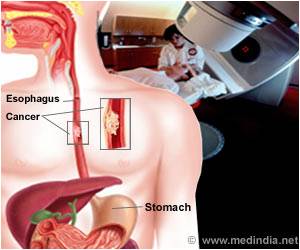Women can afford to wait till the age of 50 for a mammogram. Anyway those at average risk of breast cancer in their 40s don't benefit from the procedure.
Women can afford to wait till the age of 50 for a mammogram. Anyway those at average risk of breast cancer in their 40s don't benefit from the procedure, says the new guidelines released by the U.S. Preventive Services Task Force.
The task force had commissioned two studies to look at the effectiveness of mammography, clinical breast examinations, breast self-examinations, digital mammography and MRIs in detecting breast cancer.The studies found that mammograms in women aged 40 to 49 led to false positive tests that created a need for invasive procedures like biopsies and generated anxiety.
"The UTSF recommends against routine screening mammography in women aged 40 to 49 years," reads the report. Instead, women aged 50 to 74 are advised to get mammograms every two years. After age 74, there is a lack of evidence as to the effectiveness of mammography.
The task force also recommends women not be taught to perform breast self-exams.
The guidelines, published Monday in the Annals of Internal Medicine, go against the recommendations of the American Cancer Society, which suggests annual mammograms beginning at age 40.
Critics say by waiting ten years before regular mammograms, women could miss a crucial diagnosis.
Advertisement
The American College of Obstetricians and Gynecologists (ACOG) too issued a statement reiterating its current advice that women in their 40s continue mammography screening every one to two years and women age 50 or older continue annual screening.
As the organization representing the nation's ob-gyns who provide health care exclusively for women, ACOG welcomes the new review data on breast cancer screening, the statement said.
“The USPSTF also recommends against clinicians teaching women how to perform breast self-exams (BSE). At this time, ACOG's position is that ob-gyns should continue to counsel women that BSE has the potential to detect palpable breast cancer and can be performed.
”ACOG strongly supports shared decision making between doctor and patient, and in the case of screening for breast cancer, it is essential.”
Source-Medindia
GPL






